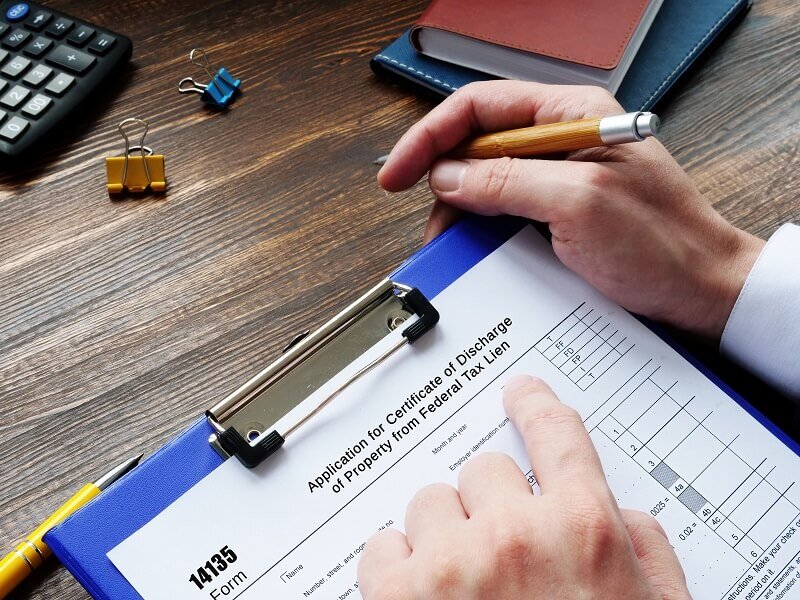
If you’re looking to sell a property with a lien attached in the state of Florida, it’s important to understand the implications. A lien is an interest held by one party on another’s property as security for payment of a debt or other obligation. When selling a house with liens attached, there are certain processes that must be followed and considerations that need to be made before closing the sale. In this article, we’ll discuss what happens when you transfer a property with a lien attached in Florida, so you can make sure your sale goes smoothly and without any surprises.
Transferring a Property With a Lien Attached
When transferring a property with a lien attached, it is important to understand the potential risks and consequences involved. In Florida, liens are typically placed on properties when an individual or entity has not met their financial obligations.
A lien can have significant implications for both the buyer and seller of a property. For buyers, liens may require additional financial resources to clear before the transfer of ownership is complete. Sellers, on the other hand, may be expected to pay off existing liens if they want the property to be sold without issue.
It is important for both parties to understand their rights and responsibilities when it comes to a lien. The buyer should research any liens attached to the property before agreeing to purchase it. If a lien does exist, the buyer should consider any additional costs associated with paying it off and factor that into their budget. The seller, meanwhile, must ensure they are able to cover any existing liens on the property before listing it for sale.
In some cases, sellers may be able to transfer their liens directly to the buyer. This is not always an option, however, as the amount of a lien can exceed the value of the property itself. In such cases, it is important for both parties to understand that the lien will remain with the property until it is paid off in full.
>>Learn what the differences between a title and a deed are!
In any case, it is essential for both buyers and sellers to understand the implications of transferring a property with a lien attached. With the proper preparation and understanding, it can be possible to transfer ownership without issue. However, it is important to consider all risks and factors before doing so. By taking these steps, buyers and sellers alike can ensure that the process of transferring a property with a lien attached is as smooth and efficient as possible.
How Property Liens Work
Property liens are a form of legal security that allows creditors to secure an interest in another party’s real estate, such as a home or land. A lien is essentially a claim on property ownership, and it can only be removed by paying off the debt associated with the lien. In Florida, liens can be placed on a property for unpaid taxes, utility bills, and even judgments from lawsuits.
When selling a property with liens attached, it is important to understand the process and the potential complications associated with transferring ownership. In Florida, liens will remain attached to the property until they are paid in full prior to closing. This means that any prospective buyers will need to be made aware of the lien prior to signing any contracts.
The buyer and seller can either negotiate who will pay off the debt or decide to split the cost. Alternatively, if the seller is unable to pay off the liens before closing, they may be able to roll them into a loan on behalf of the buyer. In all cases, the buyer should always be aware of the lien and take steps to protect their rights during the closing process.
It is important to note that if a third party places a lien on your property after you have signed a contract with a buyer, then this debt must also be paid prior to closing or else it may be transferred to the buyer. This could result in additional costs and complications, so it is important to make sure that all liens are paid off before closing a real estate deal.
If you are selling a property with liens attached, it is important to understand the process and make sure that you take all necessary steps to resolve the liens prior to closing. This will help ensure an easy and successful transaction for both the buyer and seller.
How to Resolve Lien Issues Before Selling
In Florida, if you are selling a property with a lien attached to it, it is important to take the necessary steps to resolve any lien issues before proceeding with the sale. To do this, the seller must first determine what type of lien is present. Common types of liens include mechanic’s liens, mortgage liens, tax liens, and judgment liens.
Once the type of lien is identified, the seller will need to take action to clear it in order for the sale to proceed smoothly. Common methods of resolving an existing lien include working out a payment plan with the creditor, paying off the debt in full, or seeking legal advice if the lien is disputed.
It is important to note that under Florida law, a mortgage lender can collect up to six months of payments after the date of sale in addition to any other amounts due on the loan at closing. This means that depending on how much time has passed between when the loan was taken out and when the property was sold, the buyer may owe additional funds to the mortgage lender.
In order to ensure that everything is handled properly and that no liens remain after the sale, it is best for both buyers and sellers to consult a qualified real estate professional or attorney before closing on a deal. This will help to protect everyone involved in the transaction and ensure that all liens are addressed in a timely manner.
By understanding the legalities associated with transferring property with lien attached, buyers and sellers can be sure to move forward with their transactions without any unexpected last-minute surprises. Taking the time to resolve any lien issues prior to closing will help make for a smooth transfer of ownership.
Remember, if you’re selling a property in Florida with a lien attached, it is important to take the necessary steps to resolve any issues before proceeding with the sale. Doing so will help ensure that everything goes as smoothly and efficiently as possible.

Selling a House with a Lien Attached – What to Expect
Selling a house with a lien attached can be tricky, but it is possible. Before putting your property on the market, it’s best to understand what liens are, how they affect the sale process and what you can expect when selling a house with a lien.
A lien is a legal claim on a property that is used as security for debt repayment. Generally, when a borrower fails to make loan payments, the lender can place a lien on the property. These debts typically include mortgages, unpaid taxes, homeowner’s association dues and other outstanding debts such as those owed to contractors for home improvements.
When you sell a house with a lien, the buyer won’t be able to get clear title to the property until it’s paid off. As such, you should expect to pay off any outstanding liens before closing on the sale of your home. Depending on the size of the lien and your financial situation, this could mean taking out a loan to cover the amount.
When you’re ready to list your property, make sure that potential buyers are aware of any lien attached to the house before accepting an offer. Buyers may not be willing to purchase a home with a lien and could try to bargain for a reduced sale price.
The good news is selling a house with a lien attached is possible. There are several top cash home buyers in Florida, such as Problem Property Pals, who are willing to buy properties with liens attached. These companies make the process fast and hassle-free so you can close quickly and move on with your life.
Selling a house with a lien attached can be complicated, but understanding the process and getting professional help can make it easier. Knowing you can sell a house fast in Tampa, Florida with a lien attached – and what to expect – can help you make an informed decision and get the best outcome.
If you’re considering selling your property with a lien, contact Problem Property Pals today! We’ll provide the expertise and “we buy houses Orlando” services you need to complete the sale quickly and stress-free. Call us now for more information or to get started!
Final Takeaways
In Florida, it is possible to transfer a property with a lien attached to it. When selling the house, buyers should be aware that they will take on the responsibility of any existing liens on the property. As such, buyers should do their due diligence when researching and make sure that all debts associated with the property have been paid in full before closing the sale. With this information in mind, you can be certain that the process of transferring a house with lien attached in Florida is safe and secure.
Remember to always consult with an experienced real estate attorney prior to transferring any property so you understand all of your rights and responsibilities during the transaction. Doing so will help ensure that your rights are protected and that the transfer is successful.

 Call Us!
Call Us!